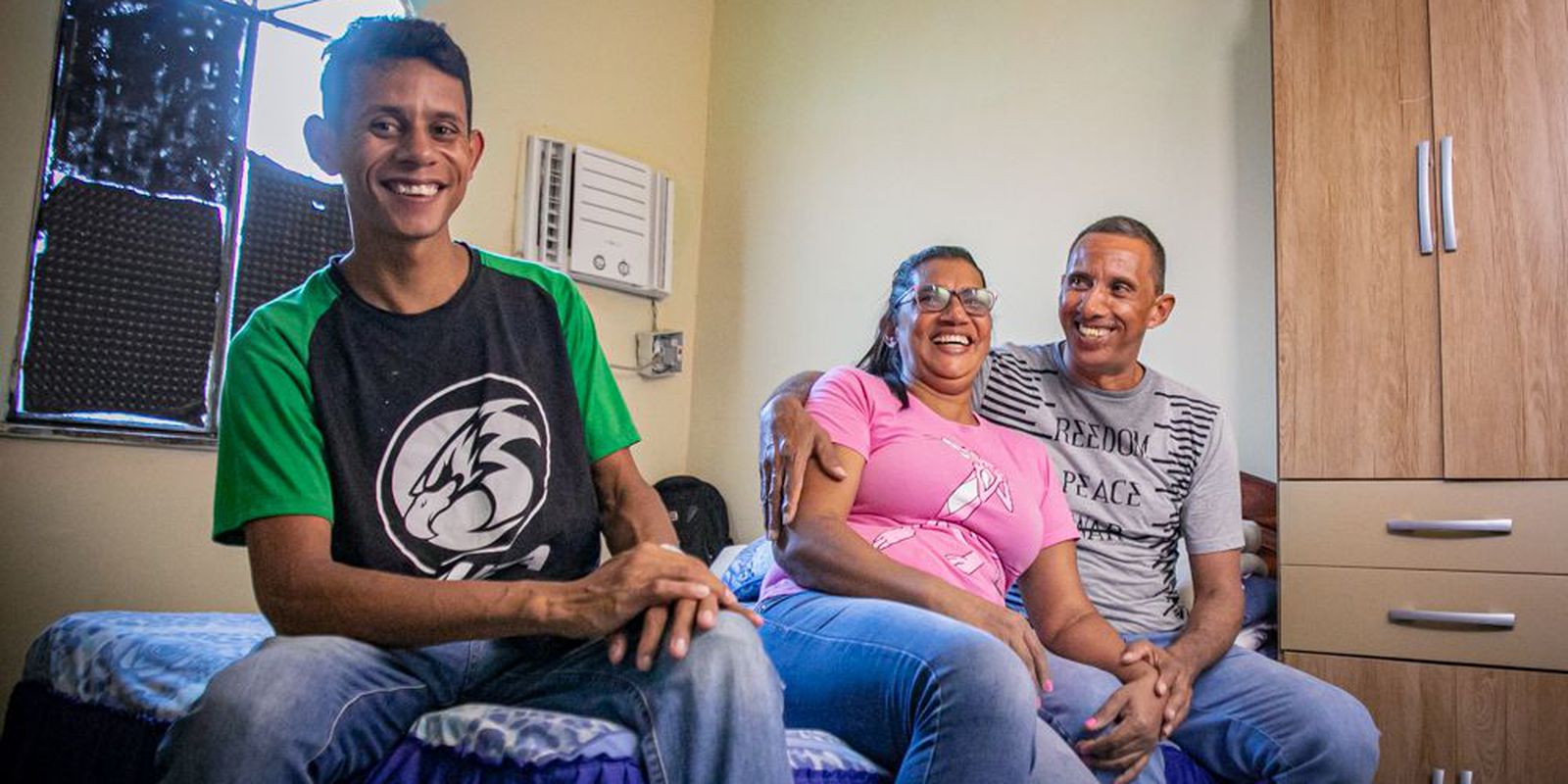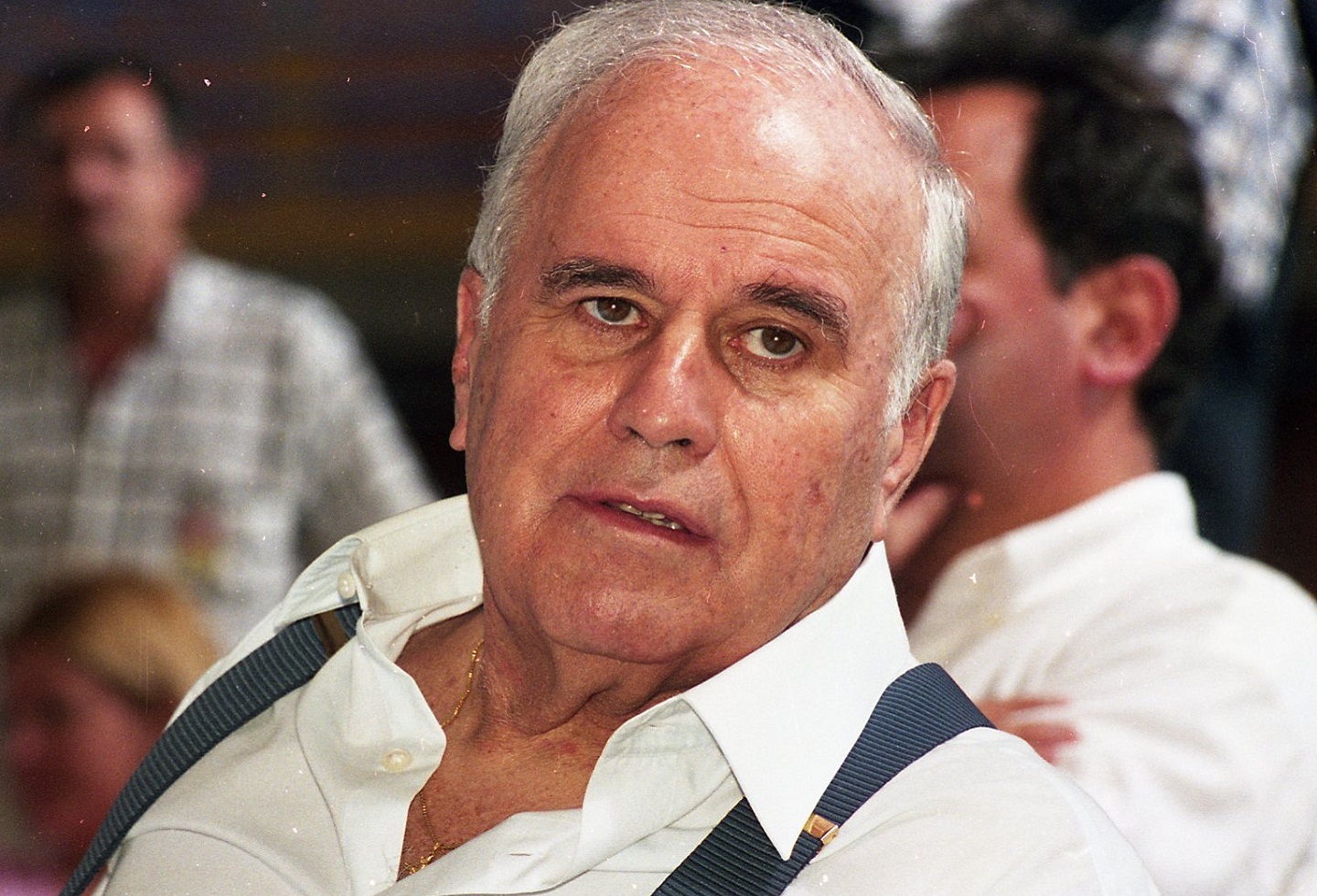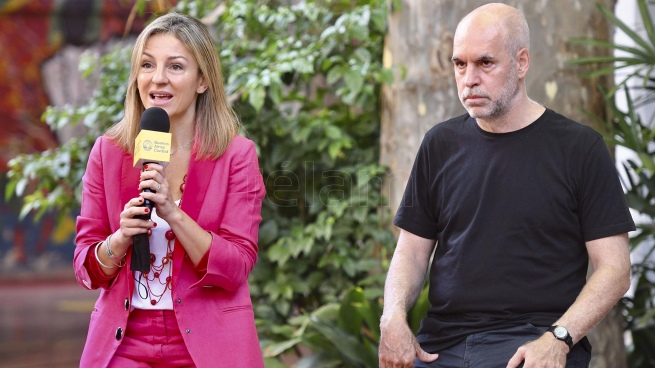“I don’t want him to spend the little money he has buying anything for me. I don’t want a gift. I’m just happy that he’s here”, 49-year-old Venezuelan Aldrix Llovera gets emotional. Living in Brazil since 2020, he will finally have the company of a son to celebrate Father’s Day this Sunday (14). Alexis, 29, arrived late last year. He came to stay and has already taken the first steps to follow his father’s profession, who today works as an electrician.
“I waited for him at the bus station in Manaus. I knew he had no clothes, he had nothing. I took clothes, shoes. He took a shower at the bus station, changed his clothes and we went home,” said Aldrix. The Venezuelan, however, lives with the loss of four other children. Like other refugees who left their countries in search of a new life, he follows a path marked by separation from loved ones, sometimes for a short time, sometimes for long periods.
Even without expecting big celebrations for this year, Aldrix happily remembers Father’s Day in Venezuela: “barbecue, beer, rocket, almost the same as it is here”. In search of better living conditions, he left Valencia, the city where he lived in the north of the neighboring country. He crossed the border alone, arriving in Pacaraima (RR). From there, he passed through Boa Vista, the capital of Roraima, and ended up in Manaus, where he currently lives. It is a common path taken by many Venezuelans in the midst of the migratory movement that began in 2017. “The situation in my country was very bad, very critical. It was no longer possible to work and live there”, he says.
Today, he has a formal contract and works as an electrician at an energy company. But until he settled down, he lived at the bus station in the capital of Amazonas, where there is a reception and support post for immigrants. There, people in vulnerable situations can shower, store their belongings and stay overnight in tents loaned by Operação Acolhida, an initiative led by the Ministry of Citizenship that also involves a network of organizations mobilized by the United Nations High Commissioner for Refugees (UNHCR ), an agency linked to the United Nations (UN).
Despite reporting that he suffered an attempted robbery, Aldrix considers that he was well received and that Brazilians like to help. With a steady job and regular income, he was able to make it possible for Alexis to come, who was in Colombia, where he had gone five years earlier with two other brothers. Despite the distance, they never stopped talking and when the son said he couldn’t find a job, the father promptly offered to pay for the ticket to Brazil. In recent months, Alexis has taken an electrician course. While waiting for an opportunity at the company where his father works, he seeks to support himself by selling bananas.
In addition to Brazilian solidarity, the two also have the support of a community of Venezuelans who have followed a similar path. Aldrix even met his current wife in Brazil, compatriot Miriam Machado. Data from the National Committee for Refugees (Conare), a collegiate body linked to the Ministry of Justice and Public Security, show that 70.04% of the 61,731 people recognized as refugees in Brazil are Venezuelans. SyriaSenegal, Angola and the Democratic Republic of Congo close the list of the top five countries of origin of these people.
Refuge
Asylum requests take an average of 2 to 3 years to be analyzed. They are granted if it is recognized that the displacement took place as a result of internal conflicts, foreign aggression, generalized violence, serious violation of human rights or persecution on social, racial, religious, political or national grounds. In the case of Venezuelans, the large migratory flow that began in 2017 stems from the economic and political crisis that took place in the neighboring country. At the height of this movement, around 500 people entered Brazil daily. Created in 2018 to deal with the situation, Operação Acolhida has ensured the internalization of thousands of them in different cities across the country.
In turn, UNHCR supports this population. Focused on protecting the rights of refugees around the world, the agency maintains itself exclusively with donations that can be made by the site. In Brazil, the action usually takes place indirectly, funding social organizations and third sector entities. The exception is precisely on the border with Venezuela, where several shelters are maintained and various actions are directly developed, which include Portuguese courses, professional training, sending children to school, granting social and financial aid, psychosocial care, among others. .
Luiz Fernando Godinho, spokesperson for UNHCR in Brazil, notes that rebuilding a life away from emotional ties is an additional challenge for refugees, many of whom spend years away from their spouse, parents, siblings and children. “The integrity of the family is protected by international law. UNHCR works so that refugees have access to safe and legal means of reuniting with their relatives. That is, without resorting to dangerous and irregular journeys where lives are put at risk.” , he says. According to Godinho, the family reunion helps to overcome the trauma of forced displacement and also facilitates the process of integration and adaptation to new communities.
Health
The treatment that Brazil gives to migrants is considered by the UNHCR as a positive example. Unlike other countries, which organize refugee camps, here there is an effort to integrate them into society. And the legislation contributes to this option, as it guarantees them access to services considered universal, such as health, education and even social programs.
It was precisely the fight for health that brought the Venezuelan Luis Aníbal Pinto Casanova to Brazil. At 48, he said goodbye to his wife and daughter to seek a better quality of life for his 4-year-old son. The boy suffered from nephrotic syndrome, which causes fluid retention in the body and swelling of the body. The family had difficulties to buy medicines and to get food for the proper diet.
“We had to go to the hospital several times. Until it reached a limit and they always told me that in Brazil there was help, better doctors, specialists for this disease”, says Luis. He took the same route as Aldrix and remembers the support he received to access health services. “When I arrived in Pacaraima I didn’t even have 50 cents. We entered the shelter and everything changed”.
Today, at the age of 7, his son, who is also named Luis, is doing better. “It eats everything, it doesn’t get bloated anymore”, says the father celebrating the treatment in Brazil. In addition to health, he also listed the boy’s education as a priority. At first, he managed to enroll him in a school far from the shelter where they were: he took his son by bicycle on a journey that took almost an hour. With the time he spent commuting, he was unable to take on a steady job. This only happened when a teacher helped him get a transfer to a closer institution.
“I wanted him to learn Portuguese. I want a future for my children. I want them to think one day that their father brought them to this land and that they understand that their future is here, their education is here. I want them to learn a lot because they never studied in Venezuela because of his illness. And now yes. I have a sister who is a teacher. I sent pictures of her nephew’s school and she was happy. I feel good. I take him to school, I pick up food at noon and I go to work If I have a job, it’s all right”, he says.
Luis will have an extra reason to celebrate Father’s Day, as he will be accompanied by the whole family. His wife and daughter, who had stayed in Venezuela, came later. And now there is a reinforcement with the name of ace. At the end of last month, a new descendant was born on Brazilian soil: Neymar. He is thrilled with the support he has received and says that his boss has gifted him with many new baby clothes.
“There are parents who are good with their children. And there are parents who leave and forget about their children. And that’s not right. I don’t abandon my child for anything. I feel strong and I want to have him. together, united. We are poor, but humble and with a great desire to move forward”, he says.
difficulties
If separations are painful, reunions involve challenges that go beyond the economic issue. Cheick Ahmed faces obstacles in bringing to Brazil his children he hasn’t seen in six years. “When this holiday moment arrives, children’s day, father’s day, I miss it a lot. It’s very sad that my family is away from me. But we talk on the internet, on WhatsApp”, he says.
He arrived in the country in 2016, aged just 27, after leaving Guinea due to political instability in the African country. He says that the year before, his house was invaded and his brother was murdered. Faced with the turmoil, he decided to come to Brazil.
“It is a country that has democracy. It is an emerging country that welcomes everyone. Here there is freedom of expression, there is law and there are people respecting the law”, he said. Before coming here, he took his wife and three children to Senegal, where they would be safer. At the time, the youngest was just six months old and the other two children were 4 and 9 years old. “I miss them so much, it’s sad to leave them all young. I couldn’t bring everyone together. Financially and to sort out all the documents as soon as I left the country”, he explains.
Cheick has been trying to bring his family to Brazil for three years. According to him, his residence permit, which allows the family to apply for a visa to enter the country, took five years to leave, which only happened at the end of last year. Now, there is a new obstacle for them to meet again: the issuance of a passport for the wife and children. Cheick reports that, with the recent change in the government of Guinea, the authorities of the African country would be making it difficult to issue the travel document. “Sometimes I cry thinking about how they are, if they are okay, if they ate well, if they are living well”, he gets emotional.
*Intern under the supervision of Vitor Abdala










